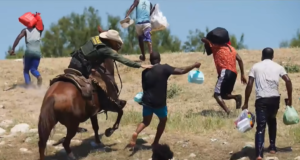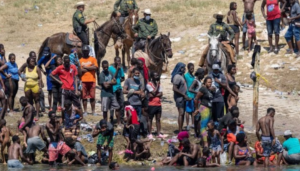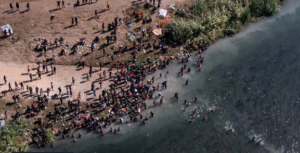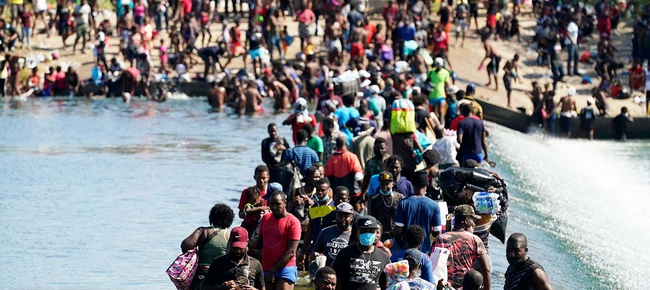Photos: YouTube Screenshots
States across the Americas must put an immediate end to the anti-Black discrimination, including race-based torture and other cruel, inhuman or degrading treatment, against Haitian people seeking safety and international protection, said Amnesty International on World Refugee Day.

“Racist migration and asylum policies only exacerbate the harm already inflicted on people forced to endure and flee the humanitarian and human rights crises in Haiti. States across the Americas must fulfill their international human rights obligations without discrimination, assess the protection needs of Haitians seeking refuge in fair and effective asylum procedures and refrain from returning them to Haiti,” said Erika Guevara-Rosas, Americas director at Amnesty International.
“Instead of further endangering them, states must protect and uphold the dignity and rights of Haitian migrants and asylum seekers. Regional solidarity and the reformation of migration policies with an anti-racist perspective are essential to addressing the grave dangers and injustices they face.”
The Americas region is experiencing one of the world’s most severe crises of people in need of international protection. According to the UNHCR’s recent report, Global Trends: Forced Displacement in 2022, six of the top ten source countries of asylum applications globally in 2022 were in Latin America and the Caribbean. Asylum seekers from Venezuela, Cuba, Nicaragua, Colombia, Honduras, and Haiti have substantially increased from 2021. This transnational crisis is the result of multiple human rights and humanitarian crises across the region. In Haiti, the deteriorating human rights situation has forced thousands of people to flee to save their lives and those of their loved ones. Yet instead of receiving solidarity from other countries in the Americas, Haitians have suffered acts of racism, xenophobia, and systematic violence in their search for protection.
Amnesty International has documented and received information on cases of assaults, arbitrary detentions, torture and other ill-treatment, mass deportations, and discriminatory practices that undermine Haitian asylum seekers’ human rights and their access to international protection in Peru, Chile, the Dominican Republic, the United States, Mexico, and other countries in the Caribbean and Central and South America.

Haitians transiting through the Americas have also suffered a constant lack of access to basic services and legal protection. These precarious conditions have been exacerbated by the systemic racism and negative stereotypes they face, hindering their integration and perpetuating their marginalization. Haitian women, girls and LGBTI people face even greater levels of discrimination, because in addition to all the dangers and ill-treatment they suffer as Black migrants and asylum-seekers, they are also exposed to the threat of gender-based violence.
Amnesty International has documented the many human rights concerns inherent in the US government’s recent decision to make the use of the mobile application mandatory in order to request asylum at the nation’s southern border. This requirement places Haitian individuals at a greater disadvantage, as they may face a higher risk of experiencing racial discrimination and violence in northern Mexico, where they are systematically excluded from shelters, forcing them to live in camps with cruel conditions and exposing them to greater danger. They have also experienced difficulties using the CBP One app’s facial recognition technology that struggles with recognizing Black faces and raises serious privacy, discrimination, and surveillance concerns.
Amnesty International has also condemned the US and Canadian governments’ agreement to expand, rather than rescind, the Safe Third Country Agreement in response to border crossings at Roxham Road. The organization is disappointed that Canada’s Supreme Court has failed to decisively rule that the agreement violates refugees’ rights, exposing refugees – including those from Haiti – to further harm while awaiting a further legal challenge against the agreement.
Governments in the region must end mass expulsions and deportations as well as other racially discriminatory practices against people in need of international protection, including Haitians. Instead, they must provide them with access to protection without discrimination, including fair and individualized assessments for refugee status, and other pathways to regularize their status, in accordance with both the UN Convention on the Status of Refugees and the Cartagena Declaration.








